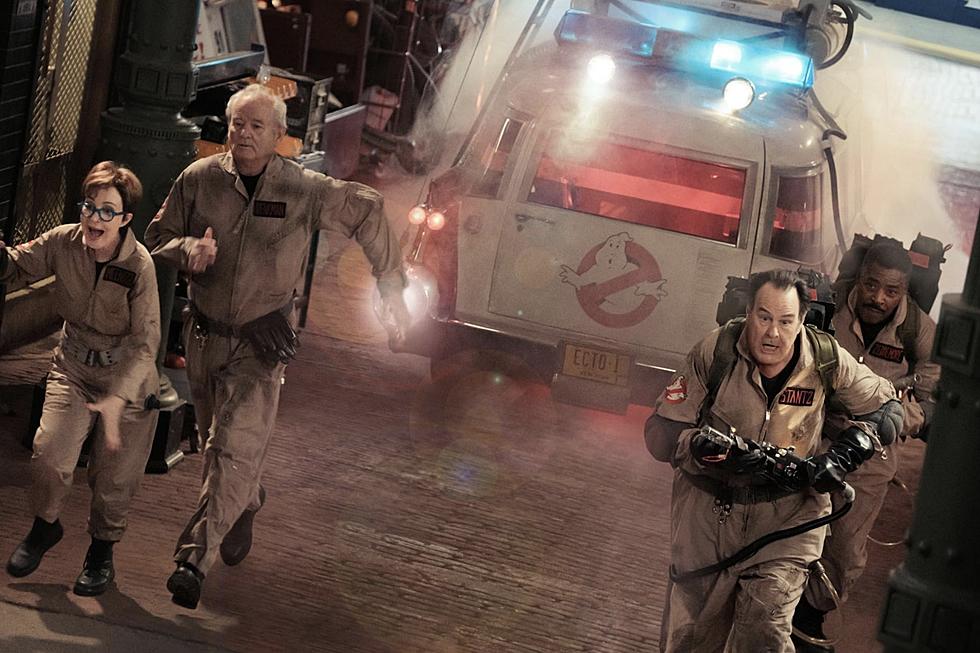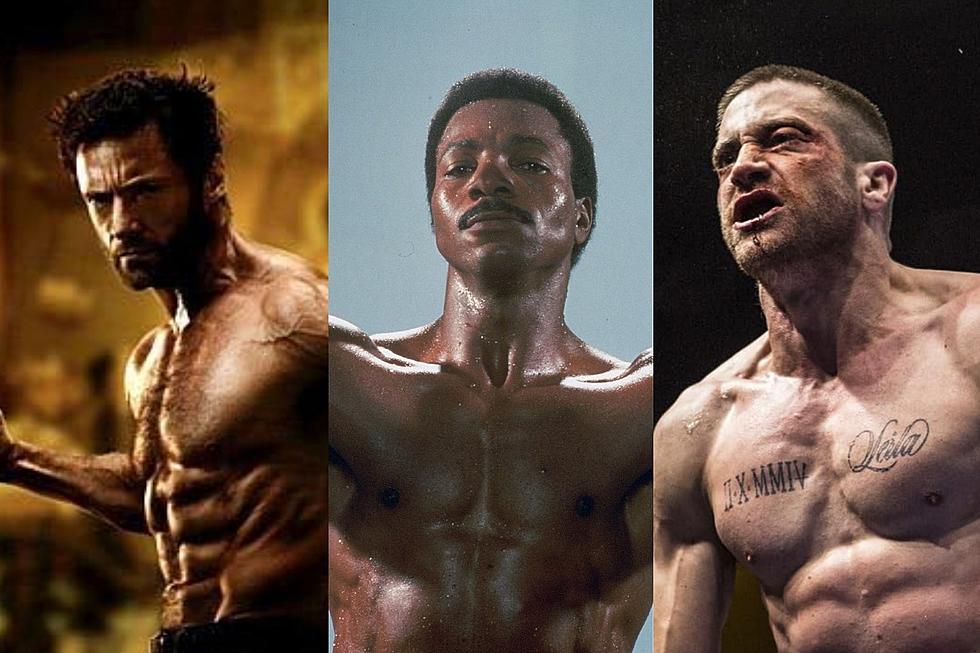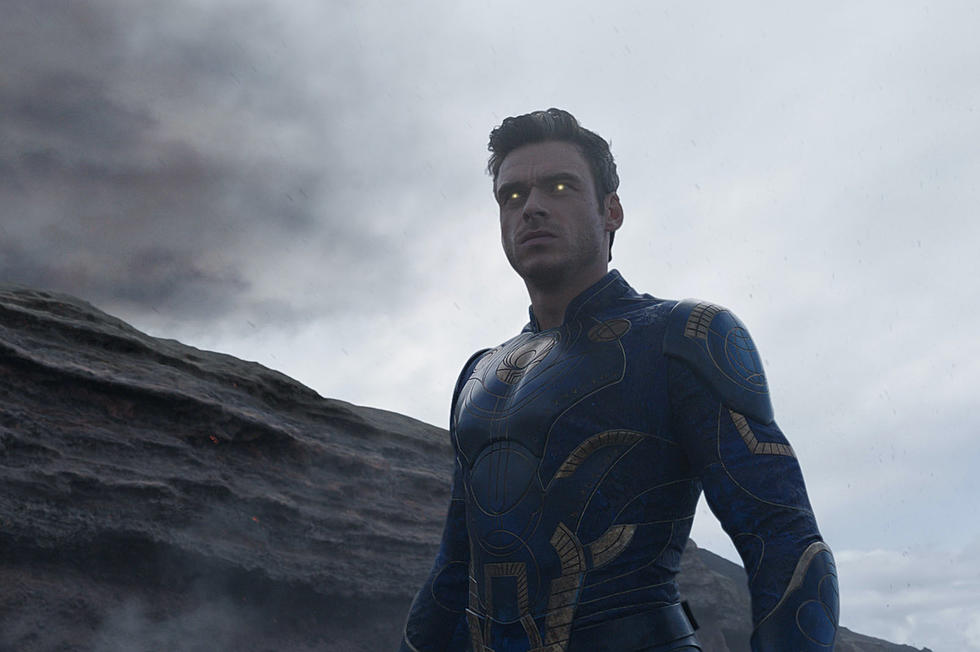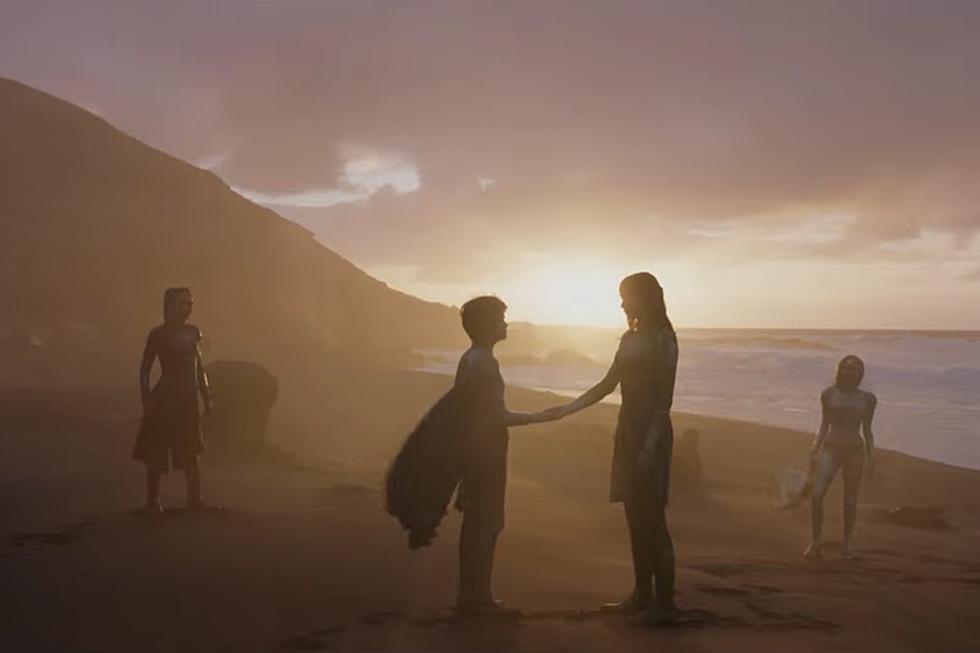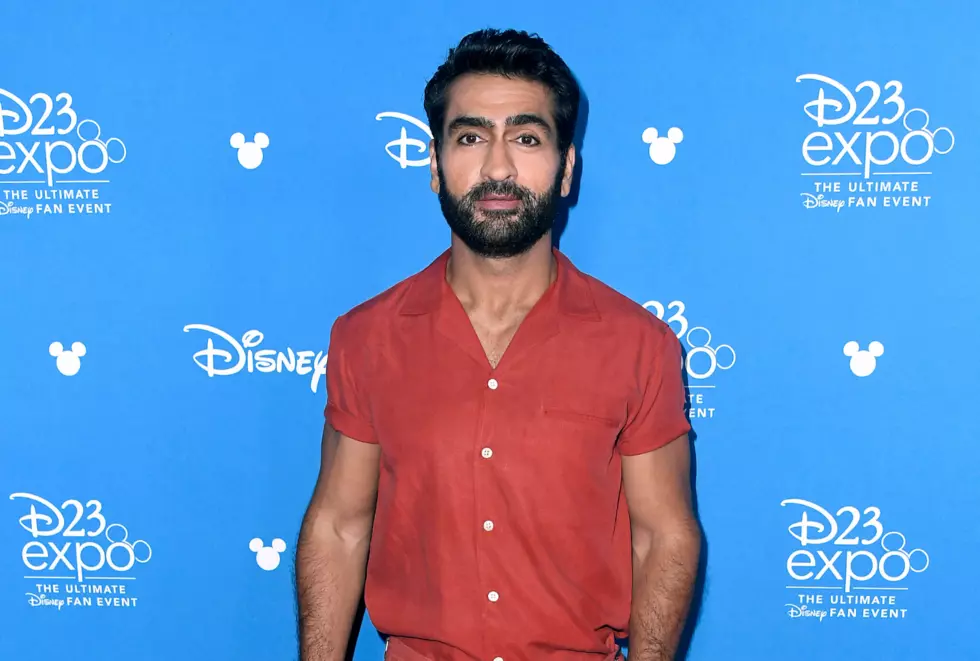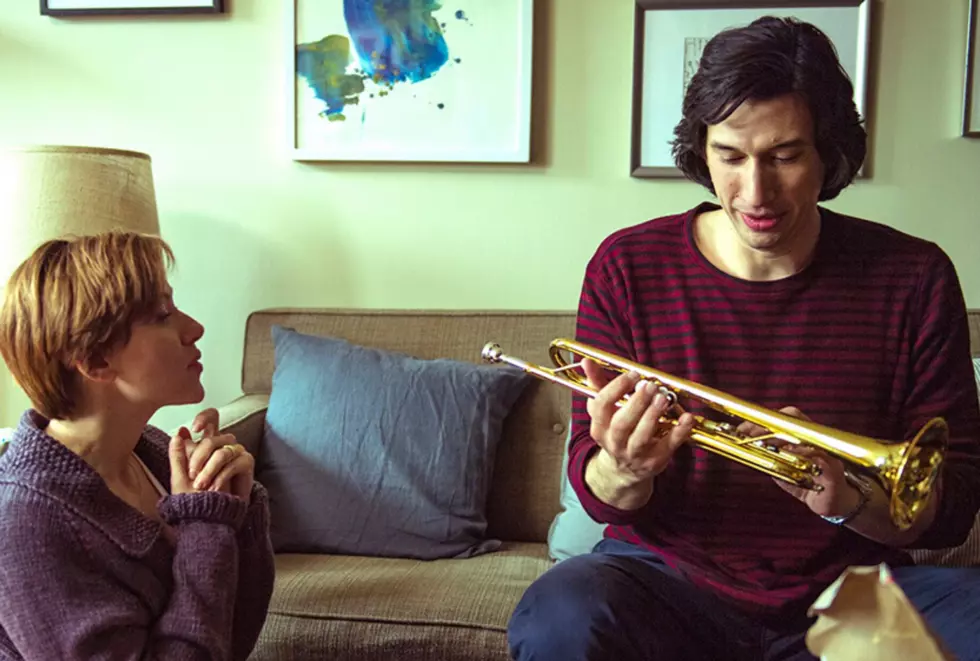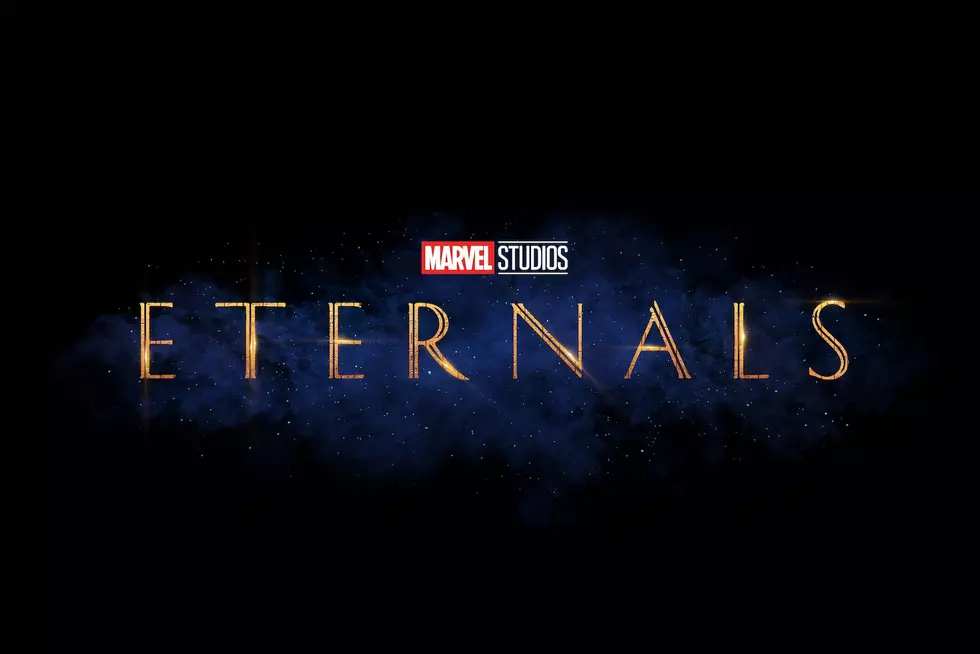
‘The Big Sick’s Kumail Nanjiani and Emily Gordon on Turning Their Real-Life Romance Into a Really Great Rom-Com
Occasionally, we’re blessed with a romantic comedy so perfect that it becomes an instant classic. I can say with 100 percent certainty — and absolutely zero hyperbole — that The Big Sick is the next film to join the great rom-com canon. Written by Kumail Nanjiani and Emily Gordon (and based on their real-life courtship), The Big Sick stars Nanjiani as himself (sort of), a Pakistani-American comedian who falls for the girl of his dreams (Zoe Kazan subbing in for Gordon). But if you’ve seen the charming trailer, you know there’s a catch.
Emily is white, and Kumail’s strict Muslim family insists he have a traditional arranged marriage with a Pakistani woman. Okay, there’s one more problem: Emily gets sick, which leads to a less-than-ideal meeting between Kumail and her parents (Ray Romano and Holly Hunter). Directed by Michael Showalter of Wet Hot American Summer fame and produced by Judd Apatow, The Big Sick puts a contemporary and culturally relevant twist on the conventional rom-com blueprint, resulting in a relentlessly funny and truly heartfelt film. I couldn’t wait to speak with Nanjiani and Gordon about their work — and what might be the funniest scene you’ll see in a movie theater this year.
With a story this personal, where do you determine the line between fact and fiction?
Kumail: [To Emily] I think you had more where you were like, “This should just be ours, this shouldn’t be a thing,” where I was like, we should put everything in here, everyone should know!
Emily: I try to keep boundaries for stuff. I think at first, especially, I wanted to make sure that there were boundaries between what was ours versus what belonged to the rest of the world. After a while, it got more and more comfortable, and as we brought more people into the process and they were pitching stuff too, it became easier for it to be fictionalized. We always wanted to make sure it stayed true to the kernels of what the actual truth was, and as long as the fictionalized person stayed true to the kernel of truth — the emotions behind it, the feelings behind it — we’d kind of go with it.
Kumail: The one thing that Emily kept pushing while we were writing was towards the end, “At some point it has to turn from our story to a story,” and I think that that switch sort of happened toward the end of the writing process. We got more and more people weighing in, you know, obviously Judd [Apatow] giving us notes and Barry Mendel, the other producer, giving us notes, but not that often. We were sort of writing in a vacuum, taking it to them, getting notes.
Towards the end of the process, once Mike [Showalter] came on, the process became a lot more involved and more and more people would be weighing in, so it became easier for it to become its own story rather than our story. It became about servicing what the story wanted to be and not just servicing what had happened to us, and as we got more actors involved and they weighed in, it became really collaborative.
Emily: I had to get comfortable with people being like, “Well, Emily wouldn’t do that,” and they’re actually right — “Emily” wouldn’t do that.
It seems like it might be difficult to cast yourself.
Emily: We saw a lot of really great people. I didn’t go to the auditions because I didn’t want that to make people go wonky. So I just watched all of the audition tapes.
Kumail: I auditioned with some really great actresses.
Emily: We were basically looking for someone that wasn’t doing an impression of me, and didn’t have to look like me necessarily, but just had the same kind of essence of like, takes herself seriously but is also really quirky.
Zoe Kazan is so perfect, but when is she not, you know?
Emily: She brought so much to it and is also such a great actress and kind of created Emily, her own version of Emily, which we also really wanted someone to do. We didn’t want someone to come in like, “Well, she sits like this.” It was important that she had her own independence to it, but also felt like someone who I would at least be friends with. And Zoe and I did become really good friends after she was cast.
Kumail: Yeah, we went out for a meal the next day after she was cast. The main thing was: You have to sort of buy this couple and you have to root for this couple because they are not a couple for a huge chunk of the movie. So you really have to root for them because if you don’t root for them, not just individually, but as a couple, then the movie really kind of falls apart. It was really, really important that we cast someone whose presence would be felt even while she was absent.
Emily: And that you have really good chemistry with.
Kumail: Yeah, that we have good chemistry. That you want them to be together and someone who you miss a lot, because she’s sort of not around for quite a bit of it and Zoe was just perfect.
Emily: We saw really, really great people, but Zoe was far and away clearly right for the role.
Kumail: She was just right for us.
I love everyone involved in this, like Michael Showalter. I interviewed him a couple of years ago; I was a caught a little off guard by how serious he was. I’ve had a crush on him for years.
Emily: You and me both, sister! It’s a tough thing — not really once you actually meet him, it’s fine. But as a kid, of course. I was like, “Hi, I’ve been a fan of yours for so long. I love Stella so much!” And he’s just very unenthused and clearly not impressed and says, “That’s cool.” I was like, “Oh, god.”
So you have all these people involved that have a lot of filmmaking experience, and I know Zoe is also a writer — did she have any input with the script?
Kumail: Oh yeah, we were lucky in that after we cast her — Zoe lives in New York but she was out in LA, so for a couple of weeks, me, Emily, Mike, Zoe, and Barry would get into a room and just go over every scene. We did a lot of rehearsal. Then we had the big fight, a lot of that came out of me, Emily, and Zoe just kind of talking and improvising and trying to see what that fight would look like. There’s a moment in the movie where she puts herself out there and says, “I’m overwhelmed by you.” That’s basically her way of saying “This is something to me.” I can’t reciprocate and just repeat what she says back. It’s a really quick moment. That came from an improvised moment. So once we got Zoe, we wanted to make sure all the stuff we wrote made sense coming out of her.
Emily: All the actors had really good input on their characters and we listened to all of them. They were the ones that were spending the most time with that individual character and they all became more grounded and more interesting people because of it.
Kumail: Every actor helped with the writing of their character.
Emily: Anybody who’s a writer should always, always — if you cast someone you trust then you should listen to them and listen to their input.
Kumail: Yeah because Zoe is a writer, Ray [Romano] is a writer, Holly [Hunter] is a f---ing legend.
Emily: Even if you’re not a writer, even if you’re an actor who’s just really comfortable — they know that character maybe sometimes more intimately than you do from spending more time with it.
Kumail: There’s a part in the movie where I really wanted to have a scene where her parents come out to see me do comedy. And Holly, we got that idea for that scene after we cast her. She said, ”I don’t think I, as a mom with a daughter in a coma, would go out to a comedy show.”
That’s a great point.
Kumail: Very good point. So we were like, “Okay, how do we do it so that it makes sense for you, and we have the thing where he says, ‘I gotta get out and do something, please come with me.’” So it makes sense that they would go to the comedy club because you want to have that set piece, but it also has to be earned. It has to feel real with the situation.
There are two things in particular that I really loved for that exact reason. The first is the whole bit where Movie Emily kind of loses it because she has to poop.
Kumail: [Laughing] Oh yeah!
It is the most relatable thing.
Emily: I had never seen that in a movie or a TV show! Every woman I know goes through that.
As women we have these conversations all the time, where it’s like, “Where do you go?” Men never have matches. They never have anything. What do you even do?
Emily: Yeah, you can’t go. You have to make up an excuse to leave. There’s nothing you can do.
Kumail: Emily pitched that scene, again, pretty late in the writing because we wanted to have these scenes that showed intimacy increasing but also that Emily has certain things about herself that she wants to guard, like with her changing under the blanket in the beginning after we first hook up. When we showed the movie to people — and you know, we have a long first act because you have to show the whole relationship — we were like “What scene can we cut?” People would say that this is the one scene that has nothing to do with story, but Emily and I were like, “No, we have to keep that!”
Emily: Men would say cut that scene. I never heard a single woman tell me to cut that scene because that scene is the most relatable scene.
The other thing I really loved is that moment where Kumail goes to see one of the prospective brides his mother set him up with, and we get to hear her perspective. I found that really valuable because in another film, we’d probably never know how these women feel about this situation.
Kumail: That’s another thing from Emily.
I had kind of assumed that, but I didn’t want to seem presumptuous, you know?
Emily: We went through a lot of versions of Khadija. A lot of versions of these characters. We kept Vella [Lovell], who is from Crazy Ex-Girlfriend and who I love. She kept coming in to read. We had her audition so many times for every version of that character, and I’m sure that is annoying for her.
Kumail: She nails every single version.
Emily: She nailed it every single time. I think what we landed on is that all we really want to see is that this is a girl who is going through the same thing that Kumail is going through but is willing to give it a try, whereas Kumail is too much of a chicken s--- to tell his parents that he doesn’t want to and isn’t going to go through with it. He’s kind of not doing either. So now he’s irritating both sides.
Kumail: You have to show that some people are on board with [arranged marriage]…
Emily: It works for them. We had to show that it’s a good idea for some people, and that she is getting the rug pulled out from under her, very similar to Emily in a lot of ways. They’re not so dissimilar characters, and that’s where we landed with Khadija, and I love her so much.
Kumail: So we did all these different versions of it, and we’re big fans of rom-coms. Mike is too. Four Weddings and a Funeral is our favorite. One of our favorites. My favorite. I don’t know how well you know that movie. [Sarcastic] Nobody knows it as well as I do.
There’s a character called Duckface in it, and she’s the wrong girl — but she’s wrong in the way that she’s annoying and not smart and all that. So we were like “Is this character Duckface, or is this a viable great person and a good character?” The only thing wrong about her is that she’s not Emily. So we were going through this, auditioning a lot of people. That was the toughest part to cast in some ways, and then Judd called Emily and was like “You’re the caretaker of this character.” They figured out that it should be this kind of character and this kind of scene. He told Emily, “You’re the caretaker of this character, so make sure that this is a good scene.”
Emily: Yeah, and it is true that it’s also a choice for Kumail that he could have been, like, “This girl is pretty and she’s actually pretty cool. F— this girl in the coma! Let me take the easy way out and I’ll have a happy life, my parents will be happy.” That’s a safe option for him. For him to say no to her and still keep pursuing Emily is kind of a big moment for Kumail’s character. For once [he’s] not taking the easy way out.
Kumail: It’s the first person that I said a dangerous truth to, which is that I can’t marry someone. But it’s funny that both of those scenes you loved are scenes that, when you test the movie, dudes would be like “We could lose this scene, that scene.” And sure, they don’t have anything to do with the actual story, but with the character stuff and making sure that everybody’s point of view is valid and serviced. Those are some of people’s favorite scenes. I’m so glad you pointed out those two scenes.
Emily: But you can see how that can end up happening when people are trying to cut movies down. The things that often are not super relevant to the story are things that end up being very relevant to the world.
Kumail: That’s how movies fail the Bechdel Test. It’s in the editing.
Emily: It’s true.
The Big Sick hits select theaters on June 23. It expands nationwide on July 14.
More From ScreenCrush
